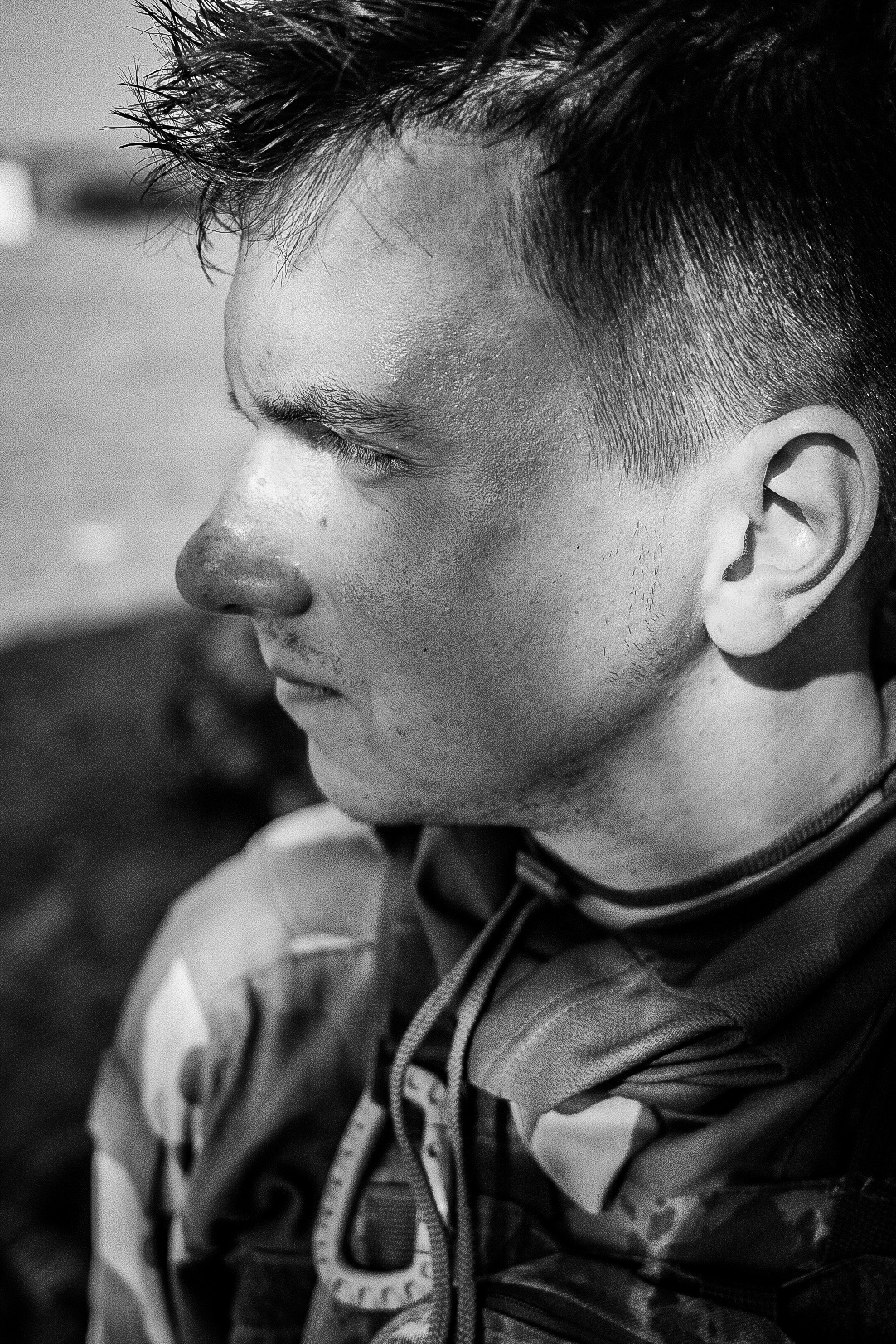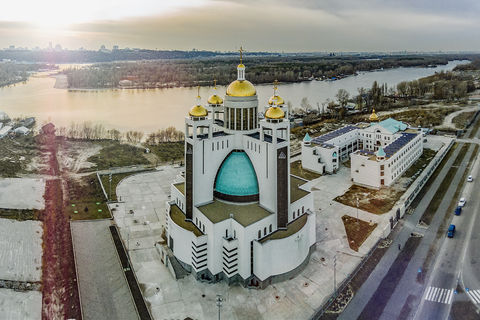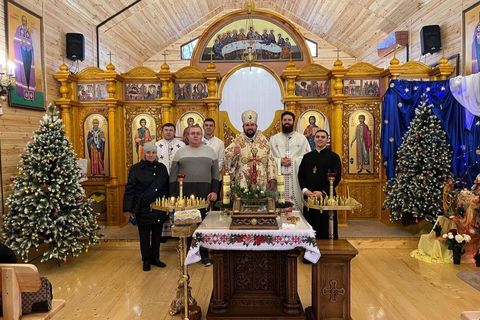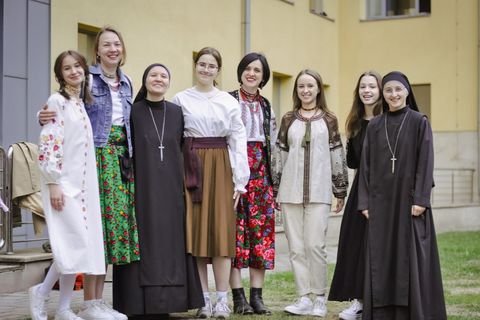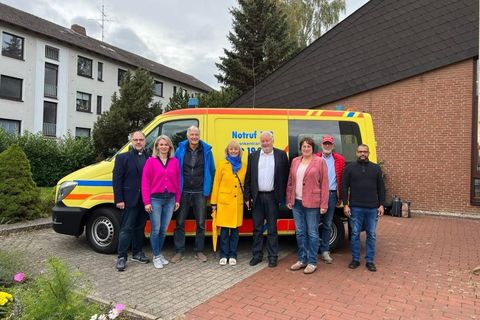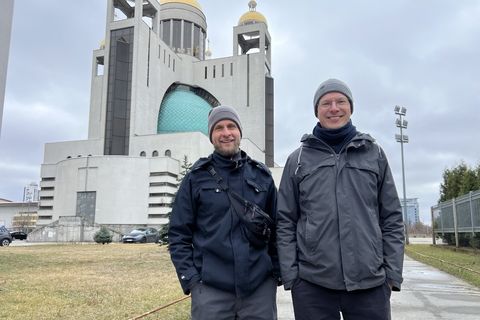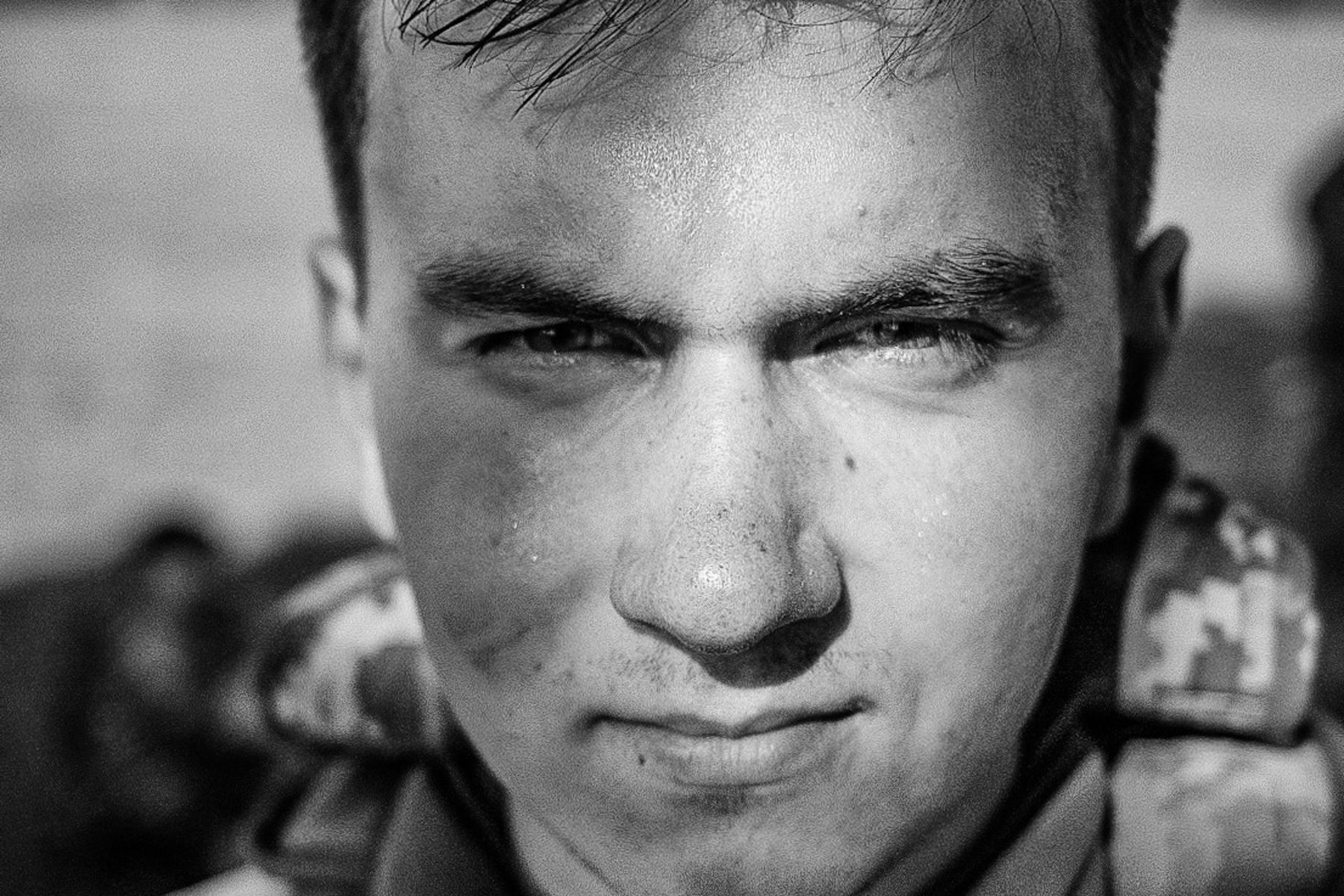
Leonid Matsievskyi, Officer of the 80th Brigade of the Armed Forces: “The fight for Ukraine is a fight against the spread of evil.”
February 1, 2023 End of January, Zhytomyr. The temperature is −3 Celsius. “What a shame it’s not an armored personnel carrier,” Leonid sighs jokingly, opening the door of a low sedan parked by the sidewalk. He slowly gets into the car, the wound is fresh, the broken ribs cause pain. “Still, riding an armored personnel carrier in the cold is a pleasure. You get chills, it blows from all sides, and when you jump off, start walking, it gets hot. I remember the temperature was −15 Celsius, and my body temperature was +39 C. But when the Muscovites attack, you don’t care: you get so involved in the process that you don’t feel anything. Only when the battle is over, you are shaken.
Strength to strength, blow to blow,
Shout-out, bundles of sparks!
You have a priceless gift from God,
You are strong, agile, brave, smart!
Oleksandr Polozhynskyi
On February 24, I called “The Right Sector” to find out where I could be useful. Then I went to Ternopil to work at the headquarters. In “The Right Sector” they would see me as a journalist by my diploma, I was offered to become a press officer. But I wanted to be on the battlefield.
Frankly, I do not like the military, and now I don’t like weapons. I used to be surprised when my PLAST friend, a veteran of the Anti-terrorist organization (ATO/OOS), said that he couldn’t stand automatic weapons. Now I understand: you constantly carry that machine on you, it’s heavy, uncomfortable, and if you lose it somewhere or it gets stolen, it’s a big deal. I don’t like these things, but I can’t do without them now.
The devil sometimes drags us into the field where we are not professionals
In the first days of June, I went to the Military Commissariat with the intention of mobilizing. They refused me there, telling me to stay at home. I didn’t like the idea. I talked to priests; they advised me to think it through. They said that the devil sometimes drags us into the field where we are not professionals. I even went to a psychologist for the first time in my life. Then, I realized that this will stop when I join the fight to do the right thing. I am not a military professional. However, most of the guys are not now, and they are doing well. This war will have to be won with non-professionals. Two weeks later, I went to the Military Commissariat again and told them I wanted to join anyway.
At that time, I proposed to a girl, got mobilized, and took the training at the Odesa Military Academy. Then, I joined the unit in Kramatorsk. In August, I came to Lviv for ten days. The trip took me a whole day: from Kramatorsk to Dnipro four hours, and by train to Lviv another twenty. We got married and spent a honeymoon week together. On my birthday, August 18, my parents and Yulia gave me a cake with the inscription: “24 (as my age)/7 is our most reliable body armor,” Leonid recalls, smiling. On the same day in Zhytomyr, I boarded a train to the Dnipro and went back.
At the beginning of our relationship, a year to the full-scale war, my future wife asked me what I would do if the war started, whether I would go to the army. I replied that I couldn’t do it any other way.
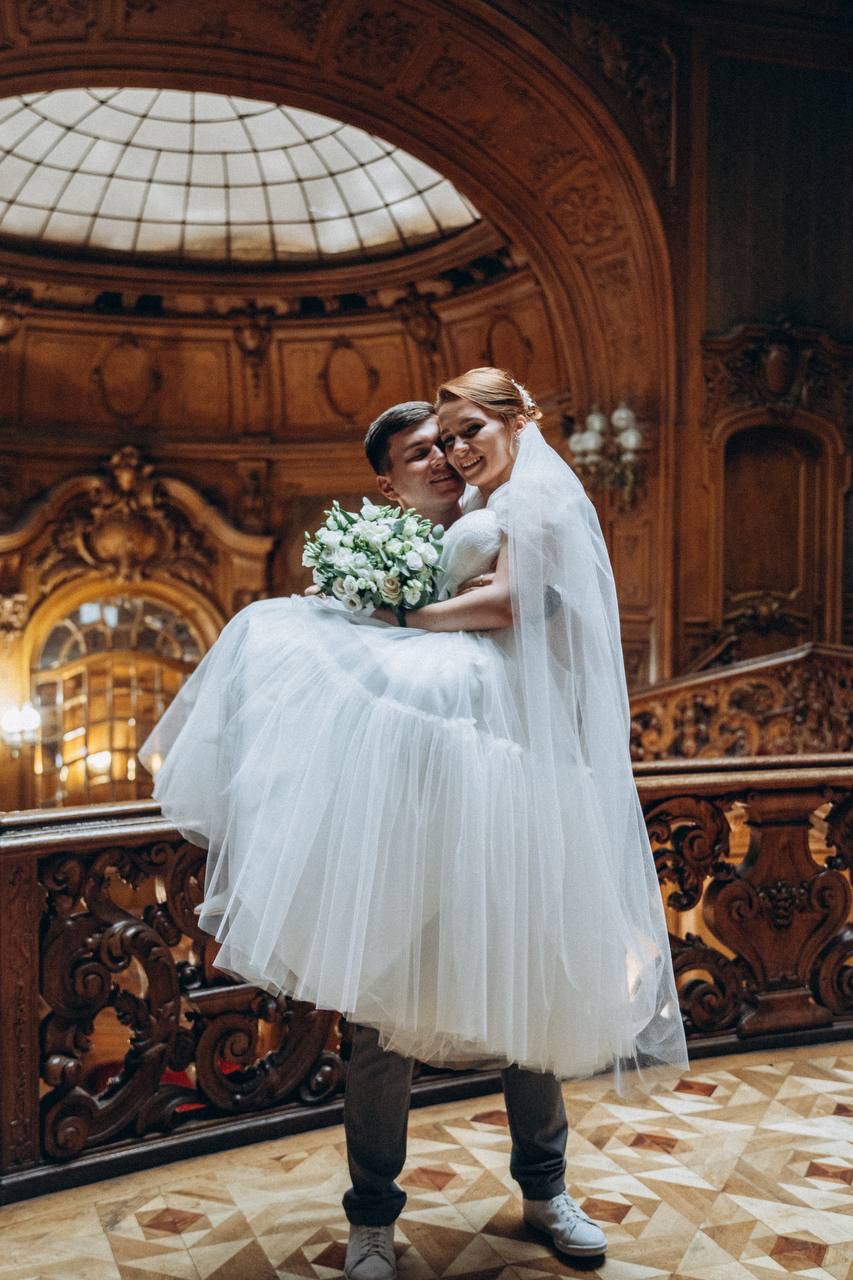
Whining at the Frontline is Cured Instantly
At the end of August in Kramatorsk, we realized that something big was brewing and we were being prepared for it. We were given enough time for combat adjustment, and in September, the liberation of Kharkiv Oblast began.
I am a platoon commander. My main weapons are a walkie-talkie and a tablet, not so much shooting as management. I would say that the work of the unit commander, for example, is more difficult, because he also has to fight. Ideally, I should not be involved in combat at all. But I did it because it gives you peace of mind: you can make decisions on the spot and adjust the work of department commanders.
I didn’t necessarily hide the dangers I was in from my relatives, but I didn’t dramatize them either. I didn’t write letters “on the boots of a murdered comrade,” as my dad would joke. Although there were guys whose relatives did not even know that they went to the war.
Marines do not have the time and opportunity to dig in well and live in the forest for weeks, like infantry in defense, for instance. We did not stay in one place for a long time. We usually lived in the houses of people who had left. There you could light the stove and cook something. We even had Olivier (potato salad) on December 31.
On combat missions, sleeping varied: sometimes in the open air, sometimes we occupied the positions of Muscovites and slept in what they had dug. They dig in different ways; Muscovites are lazy. One of their dugouts almost collapsed on us. It was raining outside. We realized in the middle of the night that it was better to stay outside, in the rain than underground, so we spent the night in the open air. PLAST taught me not to whine, not to complain when I find myself in uncomfortable conditions. PLAST showed me that life is not rosy, that you can sleep not only in bed.
There were those who got upset, there were whining, but no one pays attention to whining at the frontline. “Why haven’t we eaten for three hours, and why is there no water? …”. Well, that’s because you didn’t put it in your backpack! Whining is cured instantly. It is crucial to adapt to the circumstances.
Thank God when I was the platoon commander, I didn’t have a single casualty. But now, unfortunately, there are two of them. That happened after my injury.
We are Strong and We Will Fight Back Because This Is Our Land
If we take a position, we hold it firmly. The enemy can completely mill it down with artillery, but we will still be there. We are strong and we kick back. There is no question: what am I doing here? This is our land, and here we protect our wives, children, and parents.
Some Muscovites are good at fighting, some are not so much. Often, we would drive them out of position being far away, just by taking fire with tanks or artillery. This was the case near Shyykivka in Kharkiv Oblast. They did everything by the book: dug in in a forest strip, placed three infantry combat vehicles by each of the divisions. We saw them, called in the artillery, then adjusted the tanks. They opened fire from machine guns, thinking that if the tanks are working, then the Ukrainians are coming, and we were sitting one and a half kilometers away. I remember the next morning vividly: there is dense fog, drones cannot fly, a short firefight, and then everything calms down. I hear something jerking up and driving away. We go to those positions, and there are infantry combat vehicles standing alone, two unharmed and one destroyed by our artillery. Kadyrov chevrons “Akhmat — strength” are all over, the berets of their marines and plenty of new good weapons. That means, they were not ordinary troops stationed there; these were special forces, and they simply took off after the first shots and drove away.
But there are those who do not want to run away; there are fewer of them, as was the case, for example, in Kreminna, Luhansk region. We inflicted fire damage, pulled up, and the Muscovites did not flee. Then you need to make maneuvers, go around, think about how to chase them out. Of course, first of all, we need to perform a combat mission, but it is equally important to save the lives of personnel. The Muscovites, however, send their soldiers to the slaughter. I was in the hospital with the guys who were under Soledar and Bakhmut. They said that the Muscovites could throw an entire company of 60 to 120 people at the observation post, where five or six of our men are stationed.
At the Demarcation Line, an Elderly Man runs up to you saying, “Boys, Thank God, You are Here!”
The locals in Kharkiv region are perfect. I will never forget: we were driving from Zmiyiv, and the people were standing on the road, women were crying, children were stopping us asking for chevrons.
Or, you would come to a village on the demarcation line, all soaking wet, because it was raining, and an elderly man runs up to you saying, “Boys, thank God, you are here!”. However, he could regret it later, because when we entered the village, Muscovites immediately started shelling it. But, I think, he understood everything. Now this village is safe: the artillery can no longer reach it there.
In the same Shyykivka, people came running, “Guys, here’s borscht, here’s potatoes, and meat…”. It is not recommended to consume civilians’ food (smiling), but those were trustworthy.
Locals are different in Luhansk region. The traitors are easy to recognize. This is when you say hello, and they answer with gritted teeth in Russian “Hello!” or they pass you by, muttering, “I wish you were dead.” But the majority are pro-Ukrainian, because they suffered badly from the Muscovites.
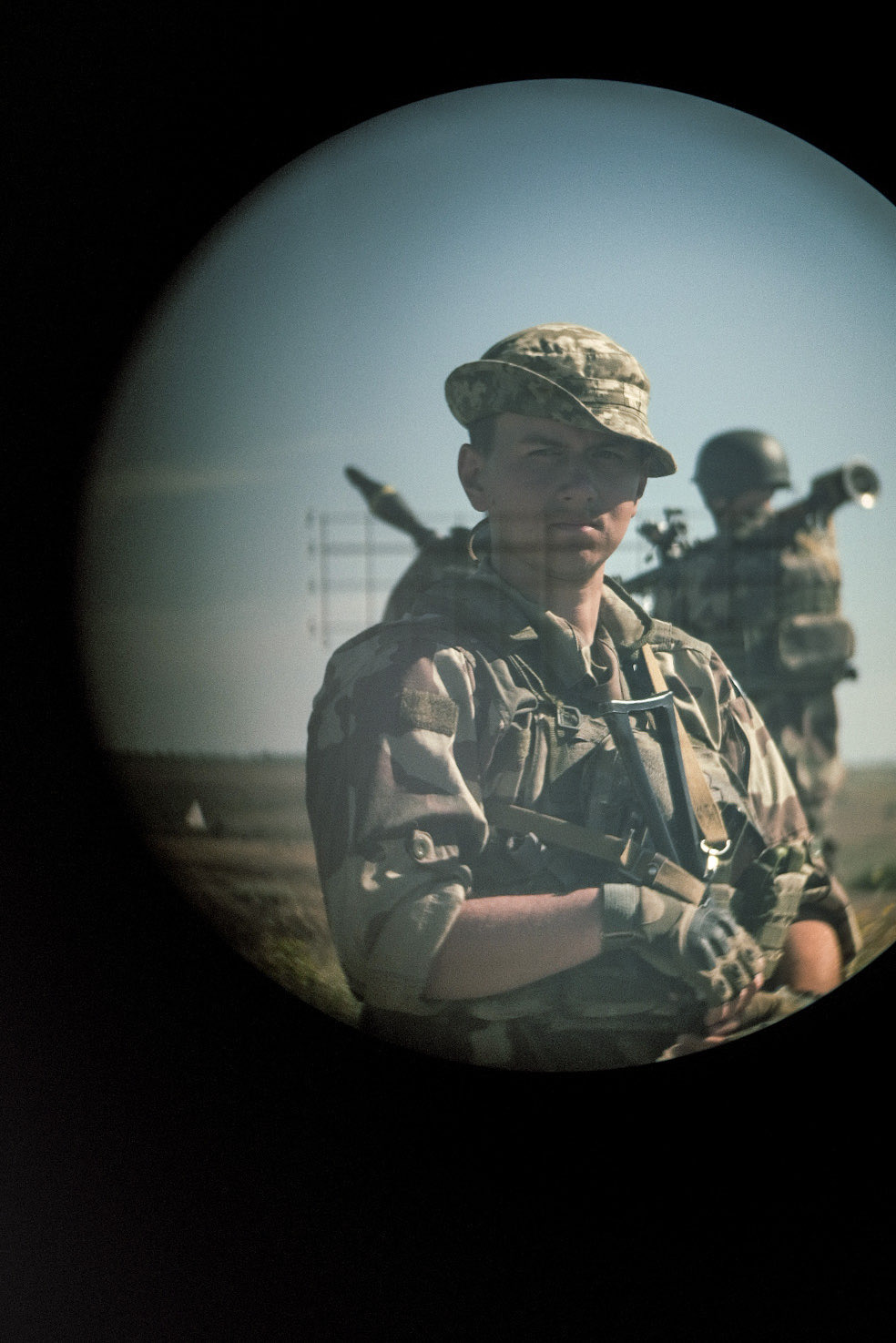
Staying Alive at the War is a Matter of Luck
We are going on an armored personnel carrier (we had reconnaissance, that is, scouting, we had to check the route). A sapper is sitting to my left. I’m writing down the route on my tablet. I lower my eyes, and see anti-tank mines. I shout to the driver: “Stop!”. We jump off and see that we are on a minefield and have already passed seven mines, and ran into none! Had the driver moved slightly left or right, that would have been it. We simply were lucky.
Or when artillery is shelling you. It can hit to a man who has trained for 15 years and has unique knowledge. The mine doesn’t care whether you are a genius at construction, or a super paratrooper, or a sushi master. It flies, explodes and kills. Staying alive at the war is a matter of luck.
At one point, it even seemed that I was lucky. Maybe that’s how prayers work? During the war, I began to believe in God a lot deeper: when the missile flies 10 meters away from you, and you are in one piece, you don’t understand how it is possible. For example, when a tank fires 15–20 meters in front of you, and it’s very scary: you see a flash, you fall, and you’re fine. The shard only hits the one behind you. How is that possible?
A hero is Someone Who Overcomes Fear and Completes a Task Even in the Face of a Threat to His Life
I cannot call a person who is alive a hero, because he still has time and the opportunity to do wrong. But of those who died and whom I knew, the hero was the company sergeant major, call sign “Nightmare”. Imagine a person sitting with coffee (he, like me, liked it without sugar), a mine flies, everyone rushes to the ground, and he only covers the cup with his hand; when the fragments fall, he removes his hand and continues to drink coffee. A person with whom you could always consult on any issue, a professional in his field. Like Plato, there are people made of gold, silver and base metal. He was a man of silver; he was a military; he was a father. I miss him very much.
“Shaman,” the company commander, was also a hero. He was my age, 24, always calm, positive. You knew that if you got into a difficult situation with such people, they would definitely not give up on you. When your commander is calm, then you yourself are calm.
Everyone is afraid. It’s okay to be afraid. What matters is whether you know how to tame fear. A hero is someone who overcomes fear and completes a task even in the face of a threat to his life. But there also is a spitter, the one trying to “drool” as much as possible, who realized that you can die here (and he came here for the money), and he already has got toothache or possible pneumonia. For example, you lead the guys to an assault in battle order, and he simulates loss of consciousness. You tell him, “Let’s go back”, and he is instantly cured: he takes the machine gun and briskly runs back. There are those who are not afraid, and you need to fix the coward. They could take turns: first one goes in the first line, then the second, but the coward flees. A person who knows how to overcome his fear has more chances to die, and this is not fair. But despite everything, we will manage. The most important thing is to win, and then everyone personally will answer to God for what he did and what he did not do.
When I was wounded, I thought, “Is that it? Is it over?”
When I was shot by a sniper, I felt a jolt in my back, and a sudden weakness. With my hand from behind, I felt a hole in my protective vest. There was one thought, “Is that it? Is it over?”, and I fell down. In the hospital, I found out that the bullet, although it pierced the ceramic plate, went up, punctured the lung, broke the ribs, but did not damage the vital organs. However, at the time of the injury, I thought it was the end. Frightened, I began to call Doc. I probably didn’t look heroic (he smiles). Later, I thought it through. I even thought that death was not so terrible. Pain is the most frightening thing in this context. It seems to me that the body only feels the pain that can be endured. When it exceeds the pain threshold, you doze off, but I was conscious all the time.
Lying down, I feel air and blood entering my lungs. Cursing under his breath, the doc cuts my jacket open, pats me down, glues an occlusion sticker, puts me on a stretcher. Blood flows from my back and peels off the sticker. They turn me over on my stomach, and take it off. I inhale and I don’t inhale! The air escapes through a hole in the back. The feeling is indescribable.
Eventually, they put me on my stomach, taped my whole back and brought me to the armored personnel carrier. In the hospital in Kramatorsk, they sealed my lungs; since then, I have not been breathing through my back. The comrades managed to organize everything the right way: they left the cover and dragged me and the unconscious group commander 900 meters on soft stretchers. I am infinitely grateful to them.
This is God’s War Against the Evil Forces
God is definitely present in the war. I feel it was His grace that I survived, and so did everyone who was near me in that battle.
I have a crusader chevron popular in right circles with a quote from Pope Urban II, who launched the First Crusade, “Deus Vult” (“This is what God wills”). God hardly wants a war, but that explains why I went to the frontline. If we are not there, then no one will be there. I defended not only Ukraine there, but also my Church. If we lose, it will be gone. My family will not be there either—they will be repressed. Everything I love will be destroyed.
The fight for Ukraine is a fight against the spread of evil. We have already had the experience of occupation by Muscovites. They act according to one plan: they destroy the ruling class, ruin the culture and begin to uproot the people. Because Russia is more than an inadequate entity. It is necessary to grasp what controls them. This fact is often overlooked in non-church circles, but it is God’s war with the evil forces. Russians are ruled by the devil. They may not realize it, but his hand is visible in their actions.
Russian Nazis Are Going to Restore the Empire
When Muscovites are captured, they immediately become polite: “I am a doctor!” Yes, but you are with a machine gun. I didn’t ask for doctors; we have enough of our own. Everyone claims they did not want to fight, but were forced to even before the official mobilization. It’s almost surprising how such ‘good people’ ended up in the war.
Once, during the Kharkiv operation, we were supposed to be entrenched at a certain intersection, and I was assigning people. I came out of the woods and saw two ‘bodies’ standing, and a civilian woman with them. So, I was debating: are they our people or not. I looked at the protective vests and saw their ‘frog,’ this Muscovite camouflage. That’s why you should always walk with a machine gun, never leaving it behind. Removing the weapon from the fuse, I asked, “Where are you from, guys?” They were two anti-aircraft soldiers, about my age, they seemed to have lost their way and ‘accidentally’ came upon us. Why do they always wander like that?! Detention of prisoners is usually done quite roughly so that they do not do anything stupid. Our guys ran up, cuffed them, hitting one. And he even asked, “What for?” I simply thought, “You’d better be quiet”: I also had to protect him from our guys because of those stupid questions.
The woman in her 50s was a collaborator. We looked through her things, found there “letters to a Russian soldier”, and some love poems. Since she was a Ukrainian citizen, we handed her over to the Security Services of Ukraine. The Muscovites were handed over to the intelligence officers, they know what to do.
Muscovites are intimidated. They think that Ukies will torment them in captivity. But I wouldn’t want to surrender either: I would be scared. Although, I don’t know how I would act in such a situation, I would really hate to find myself in it.
Highly motivated Muscovites carry ‘Great Russia’ in mind. The “Rusich” battalion, for example, is their Nazis. They are going to restore the Russian empire. There are those who go for money, and there are people who try to fulfill themselves in war, “I am a warrior, this is my life.” However, these ‘warriors’ have very blurred concepts of good and evil.
It is Necessary to Respect the Enemy, but This Does not Mean that It Is Not Necessary to Destroy It
It is important to remember that you are fighting a person. I have a very negative attitude toward torturing of prisoners, a desire that sometimes possesses the military. It must be stopped so as not to low down to their level, not to lose the inner person. It is necessary to respect the enemy, but this does not mean that it is not necessary to destroy it.
It was difficult for me at the frontline without the Sacraments of Reconciliation and Holy Communion. I felt I was changing a little because of it. On one hand, you start to appreciate it more. However, one cannot stand still in spiritual growth. If there was a chaplain around, it would be easier for me. I called the chaplains regularly, prayed with them on the phone.
On the other hand, it is necessary to find an approach to the military. There are many atheists. One of my sergeants says, “I’m an atheist, but when I’m under fire I’m a believer.” And then he is an atheist again (laughs).
Many of them do not accept even psychologists, and here you have to explain the presence of a priest in the army. I think this issue will eventually be settled thanks to the new law on chaplaincy. The Church does many things slowly, but it helps to avoid mistakes.
For me, prayer is a dialogue with God. I receive His answers either through some situation, or an idea, or a comment from a person next to me. Although there is a so-called survivor’s error. You can, for example, say, “I prayed the 90th Psalm and I survived,” but we cannot count those who prayed this psalm and died. Luckily, this error has not touched me yet.
It’s Time to Forget About Mental Closeness with Russia — It Doesn’t Exist!
This war is also our fault.
First, we were weak, and the weak are attacked.
Secondly, we were looking for mental closeness with russia (it doesn’t exist, it’s time to finally forget about it!). We had a joint ‘victory’ over some Nazis there, although the russians were simultaneously exterminating Ukrainians.
Thirdly, we allowed the demilitarization of Ukraine. These are nuclear weapons, aircraft, and long- and medium-range missiles, which we gave up to the applause of our Western partners. Like, we are kind, we don’t want war, and now we are cleaning the mess.
I cracked russia back in 2008, when it attacked Georgia. In 2008, I was 10 years old (shrugs). But even at this age, I realized that when a country attacks another country and also claims to the world that it is doing everything right, it is not normal. But for some to understand this, it was necessary for a Muscovite to knock on the door of his house.
We are losing many good people, qualified personnel. Before the war, my 6th company completely consisted of contract soldiers, now they are mostly civilians. Yes, they gain combat experience, but most will not remain in the military after the war. We will need officers, contract servicemen. Therefore, the Armed Forces, unfortunately, are not getting stronger; the state and the people become stronger. At least because they finally stopped looking for salvation from the north-eastern neighbor.
Returning to the 1991 borders sounds great, but I’m not sure that’s where it ends. We must force russia to never fight again. Revanchists will not disappear anywhere. The idea of ‘russian peace’ and the russian empire will not disappear. The question is whether we are ready to go further, to their territory. Because the defeat of Russia will only be secured by complete military humiliation, the destruction of their armed forces, and therefore the imposition of reparations, control over their government so that it does not cause trouble. It is then that they will definitely think twice before starting a war: are they really able to repeat (success)?
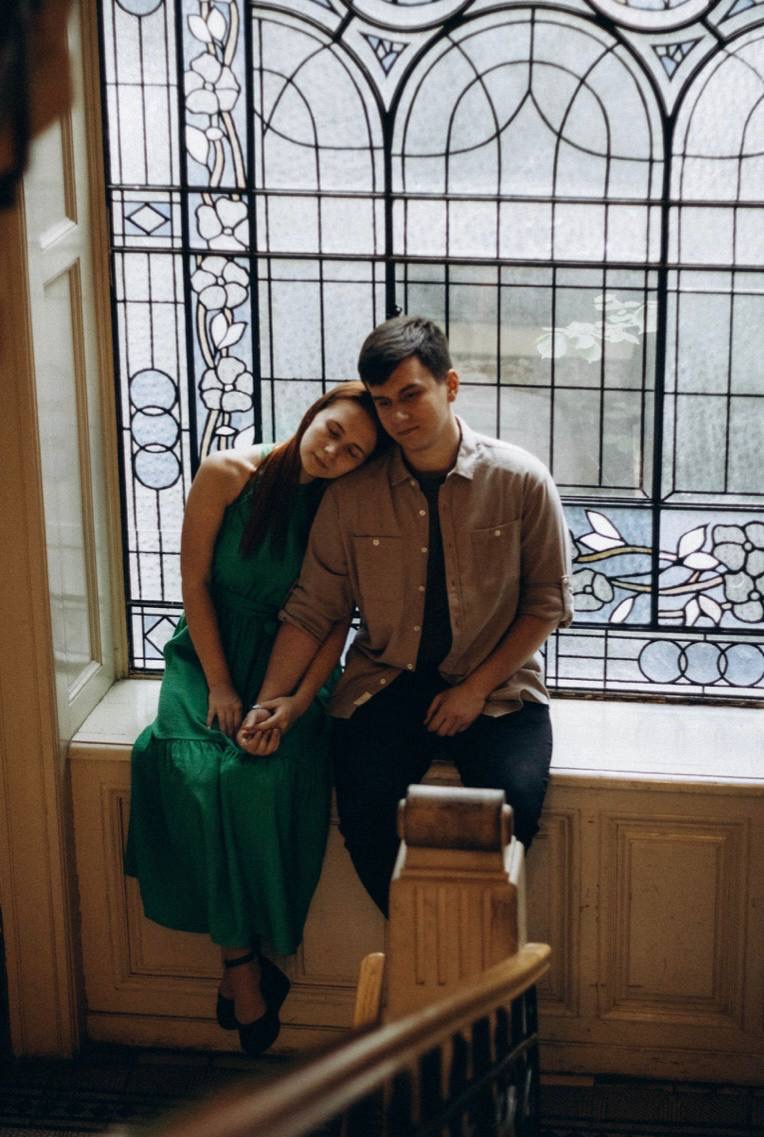
To Be a Nationalist Means to Put the Interests of One’s People Above One’s Own
I am a nationalist. For me, nationalism is: God — Ukraine — Freedom, precisely in this order. Not to be silent, not to be afraid, not to hide. To put the interests of one’s large family, one’s people, above one’s own.
It happens that guys whine, “God, when do we have a rotation? We have been at war for 10 months (and I have heard this since month 6), when will we be allowed to rest?”. I immediately imagine a Ukrainian Insurgent Army soldier who has been a partisan for 10 years when he understands that there is no chance of victory. Partisans could not fight better than the regular army. After 1945, I think they all already understood that they would not win. Yes, there were those who went back to civilian life, who succumbed to amnesty, which still ended with them being killed. But there were also those who continued the fight, and it’s hard for me to imagine that any of them would care about rotation. They were not even paid: they were left behind. They fought for what they believed in, for a distant perspective that they would not live to see.
When I was 14, I thought: back then there were people, ready to bear sacrifices, heroes. And now not so many. Before, I was very annoyed that I did not take part in anti-terrorist operation. I even said to my wife, “Why wasn’t I born in 1996? I would have been able to fully participate in the Maidan, and then join the ATO. And this 1998 is like hello” (laughs).
And then, there is this big war. It turns out that there will be enough fighting even for my generation: fortunately or unfortunately, we shall see.
Marta Synovitska,Іnformation Department of the UGCC
